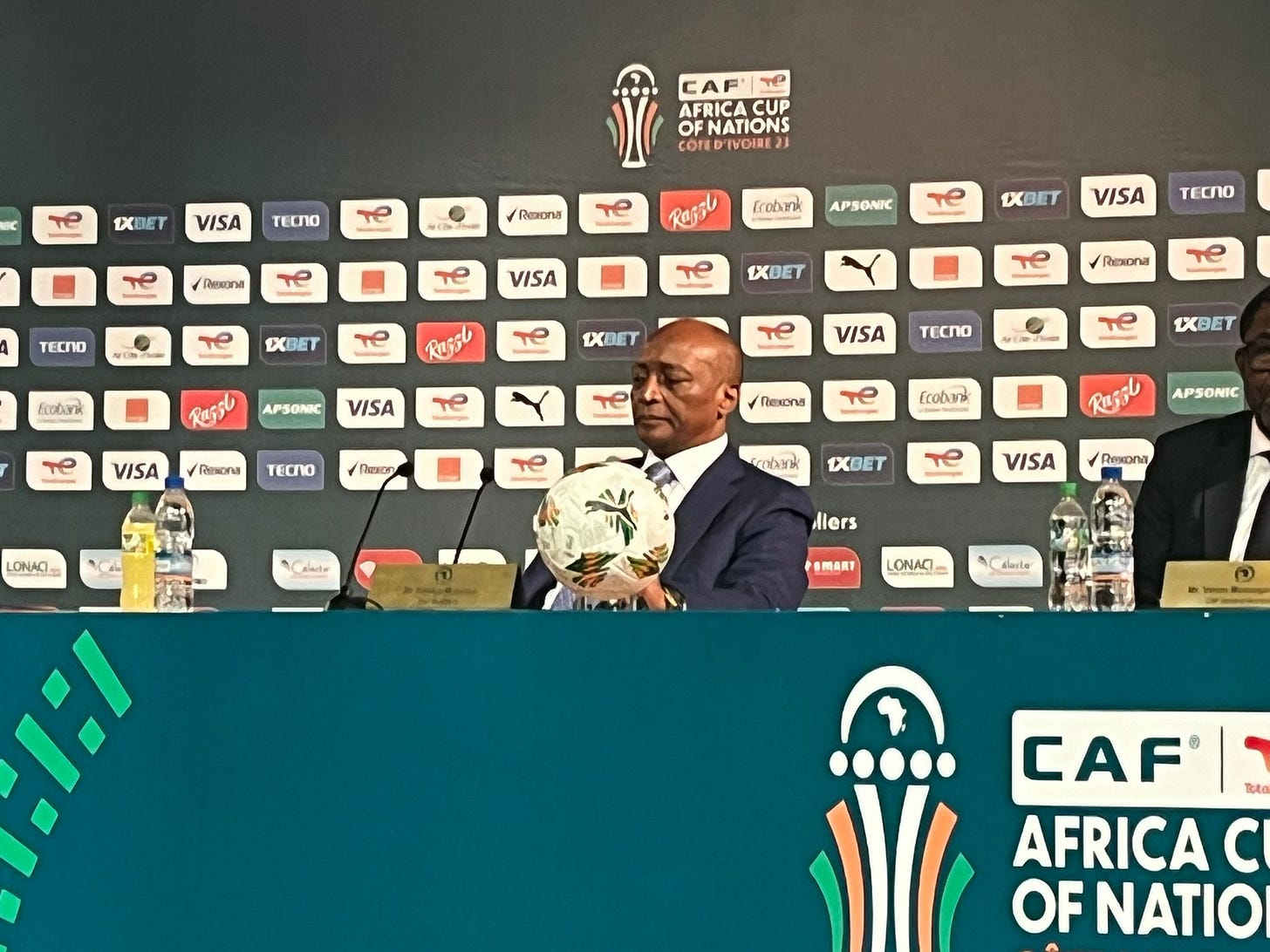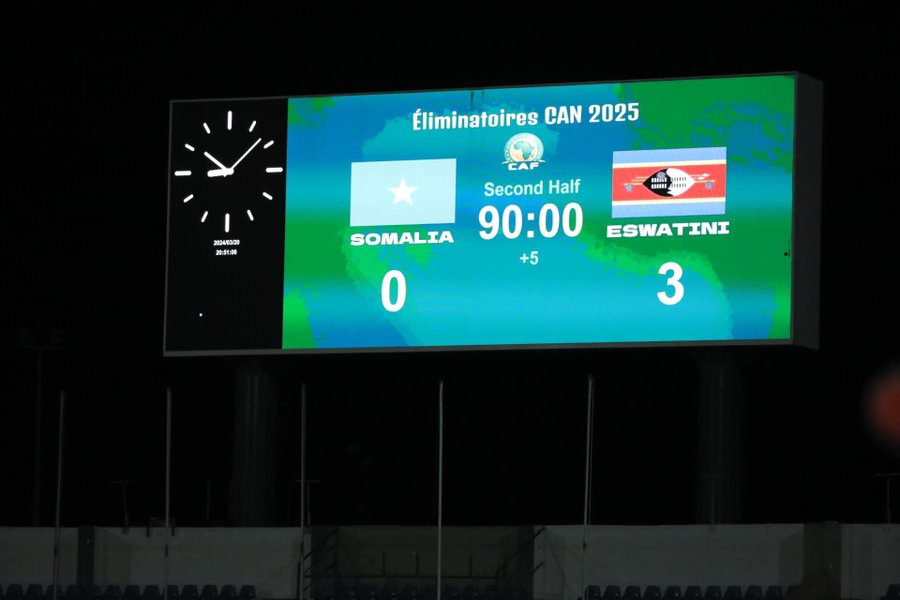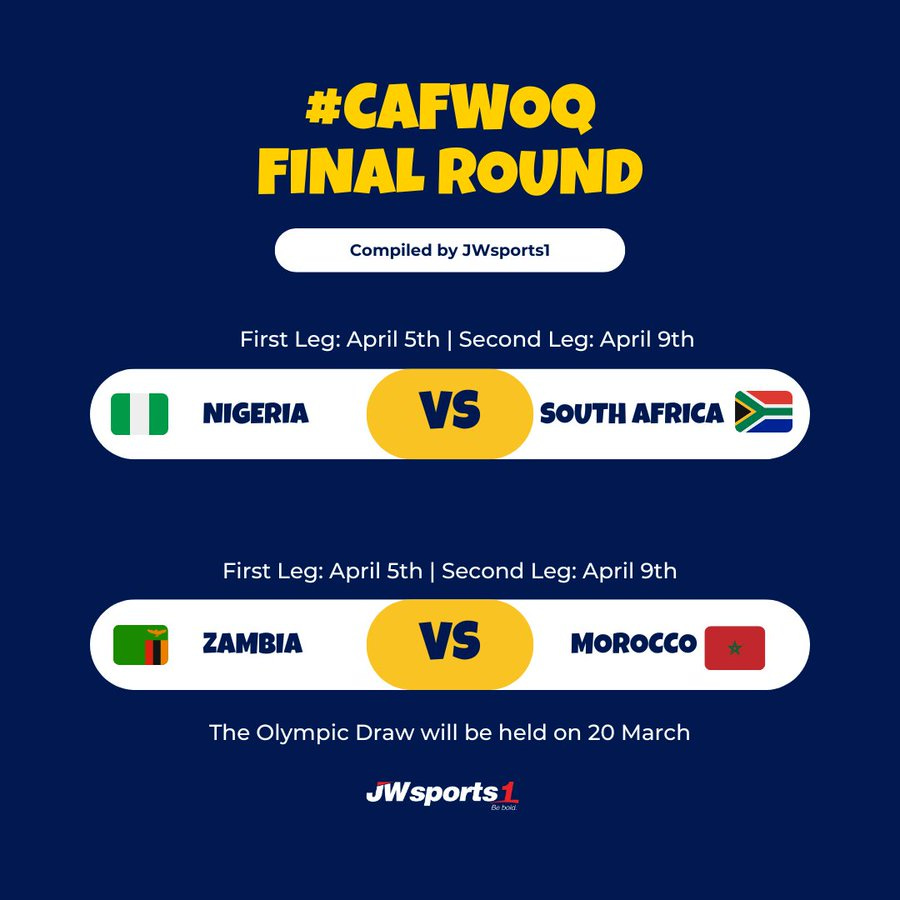We go again
Why AFCON 2025 qualifiers have started without a tournament date and other scheduling issues

Just over a month ago we were celebrating the most remarkable AFCON in history. Les Elephants had just been crowned champions of Africa for the third time in their history in one of the most remarkable tournaments in sporting history.
On Wednesday, far away from the glitz and glamour of the giants of African football like finalists Côte d’Ivoire and Nigeria, in an empty Ben M'Hamed El Abdi Stadium, home to second division Moroccan club Difaa El Jadida, Somalia and Eswatini kicked off their 2025 AFCON qualifying campaigns.
A brace from Eswatini’s record goal scorer Sabelo Ndzinisa led the team to a comfortable 3-0 win over the Ocean Stars and bar an unlikely comeback, that will be the end of Somalia’s ambitions of playing in the next AFCON.
São Tomé and Príncipe, South Sudan, Chad, Mauritius, Djibouti and Liberia join the other two in playing for a spot to try to qualify for Africa’s flagship competition. With Eritrea already pulling out of qualifying and Seychelles not part of the draw, it means that a month on from the 2023 AFCON, 9% of Africa will have already been ruled out of playing for the next Africa Cup of Nations.
For a tournament that in recent years has been unpredictably exciting due to the emergence of minnows qualifying and upsetting the established order, it feels like a huge shame to be locking out some of the smallest nations from even having a proper chance to improve and compete.
And for those teams that fail to qualify, with most of the other African teams playing qualifiers, options for friendly opponents over the next couple years are very slim. Prior to the 2026 World Cup, the qualifiers for FIFA’s biggest event were even worse, with 14 teams being knocked out after playing a single playoff. For a team like Somalia, that means that until their World Cup qualifiers begin in November against Algeria and Uganda, you would have to go back to 2009 to find Somalia’s last competitive match that wasn’t a preliminary playoff.
And even improvement from those teams doesn’t often reap rewards. The Gambia, who had arguably greatest debut appearance at the AFCON in 21st century in 2022 (2021 AFCON) when they reached the quarter finals, were rewarded by playing in another preliminary qualifier for the just finished AFCON in Cote d’Ivoire.
African football has seen brilliant mobility from the middle class of nations climbing to challenge the established order, but for those nations at the bottom of the food chain it is a near impossible challenge.
In Europe, the solution to this problem has been the UEFA Nations League which has seen teams play competitive fixtures against nations of a similar level, allowing for those teams to test themselves and improve. Teams like Luxembourg and Georgia 10 years ago would have had no hope of qualifying for the European Championships but are both one win away from qualifying for the 2024 edition thanks to Nations League.
But it would be impossible to implement something similar in Africa for one glaring reason. Africa has a scheduling problem. There simply is not enough space in the calendar to play all the football needed in Africa and this is causing all sorts of problems.
Despite nearly being a quarter of the way through 2024, we still have no idea when the 2025 edition of the AFCON could take place, thanks in part to FIFA.
AFCON traditionally were played in January because of the favourable weather conditions for most of the continent where during the European summer where international tournaments traditionally take place, much of Africa is either unbearably hot (in the north) or unbearably wet (in the tropics).
Thanks to pressure from European clubs, UEFA and FIFA, CAF aligned its calendar with the northern hemisphere and moved the competition to the summer with some expected consequences. 2019 was fine as Egypt hosted the tournament but both the 2021 and 2023 editions had to be pushed back to January/February because neither Cameroon nor Cote d’Ivoire’s climate could handle a full tournament in the wet season.
With the 2025 edition being played in Morocco, like Egypt it would have been expected that a return to the summer would be fine. However, Gianni Infantino’s new FIFA Club World Cup taking place in the summer presents a new problem for CAF.
With the project desperate to succeed, Infantino will put the pressure on the man he handpicked for the CAF top job, Patrice Motsepe, to give priority to the Club World Cup.
And while it would seem like an easy choice for the superstars of African football to choose to play for their country over a competition that their clubs don’t even want to be a part of, it’s a different story for domestic-based players.
Both Mamelodi Sundowns and Al Ahly will be at the Club World Cup and with at least $50 million on offer for just participating, both clubs will throw everything at the tournament to try to progress and earn genuinely transformational prize money.
So it is unlikely that the AFCON will stay in that summer slot, which means that once again it will likely be moved to January/February, but which one?
If it is moved forward it would have just been a year since the AFCON and while Morocco has brilliant infrastructure to host a major tournament, even they would struggle to host a tournament of that size with only nine months to prepare.
Which leaves the tournament’s only other option being pushed back to January/February 2026 which is more feasible from a CAF perspective but then puts it just six months out from the 2026 World Cup which was the reason that CAF changed the AFCON from even to odd years more than a decade ago. Not only would this be a humiliating regression for CAF but it would also put a large number of Africa’s best players in a position where they would play three major international tournaments and a normal club season within the space of 13 months.
It is as bad for the women’s international game where the 2024 Women’s AFCON has a similar problem to the men’s in that it is clashing this summer with the Paris Olympics.
While many, including myself, thought that because the Olympics happen later in the summer you could still host the WAFCON in June/July and have the final of the tournament end a week before the start of the Olympics, CAF disagrees.
While it would impact two of Nigeria, South Africa, Zambia and Morocco who are all likely to reach the later stages of the WAFCON and could potentially play six games before flying off to France to play another three at least, it feels strange that CAF would sacrifice ten teams and it’s one flagship competition in order to help two nations compete in a non-FIFA tournament.
And with Morocco hosting the men’s AFCON, CAF can’t push the WAFCON to 2025, which leaves it with the only option of trying to find another time later this year to host it. But unfortunately for CAF, FIFA is not playing ball and opening up the calendar for them to call-up players.
This leaves CAF with two options, either host the tournament later this year but outside a FIFA window, which would mean no player would be obligated to attend and so it would be a WAFCON without any of its stars, or just cancel the tournament. Sadly, the later seems destined to happen.
It’s important to note that while FIFA and the Olympics have thrown spanners into the works, most of these issues are down to CAF.
If CAF had not moved the AFCONs to summers, they would never be in a position where they clash with summer tournaments or have to push it back to a date that is only a few months out from the World Cup.
And if they had proper planning on the women’s side, they would have known to plan around the Olympics, been able to move the tournament to January 2025 where it wouldn’t be interfering with the men’s tournament, or not given the hosting rights to Morocco for its two biggest tournaments within a year of each other.
At the end of the day, all these scheduling headaches (I have one just writing this) mean that the concerns of countries like Somalia and Eswatini are swiftly forgotten for another eccentric AFCON cycle.





